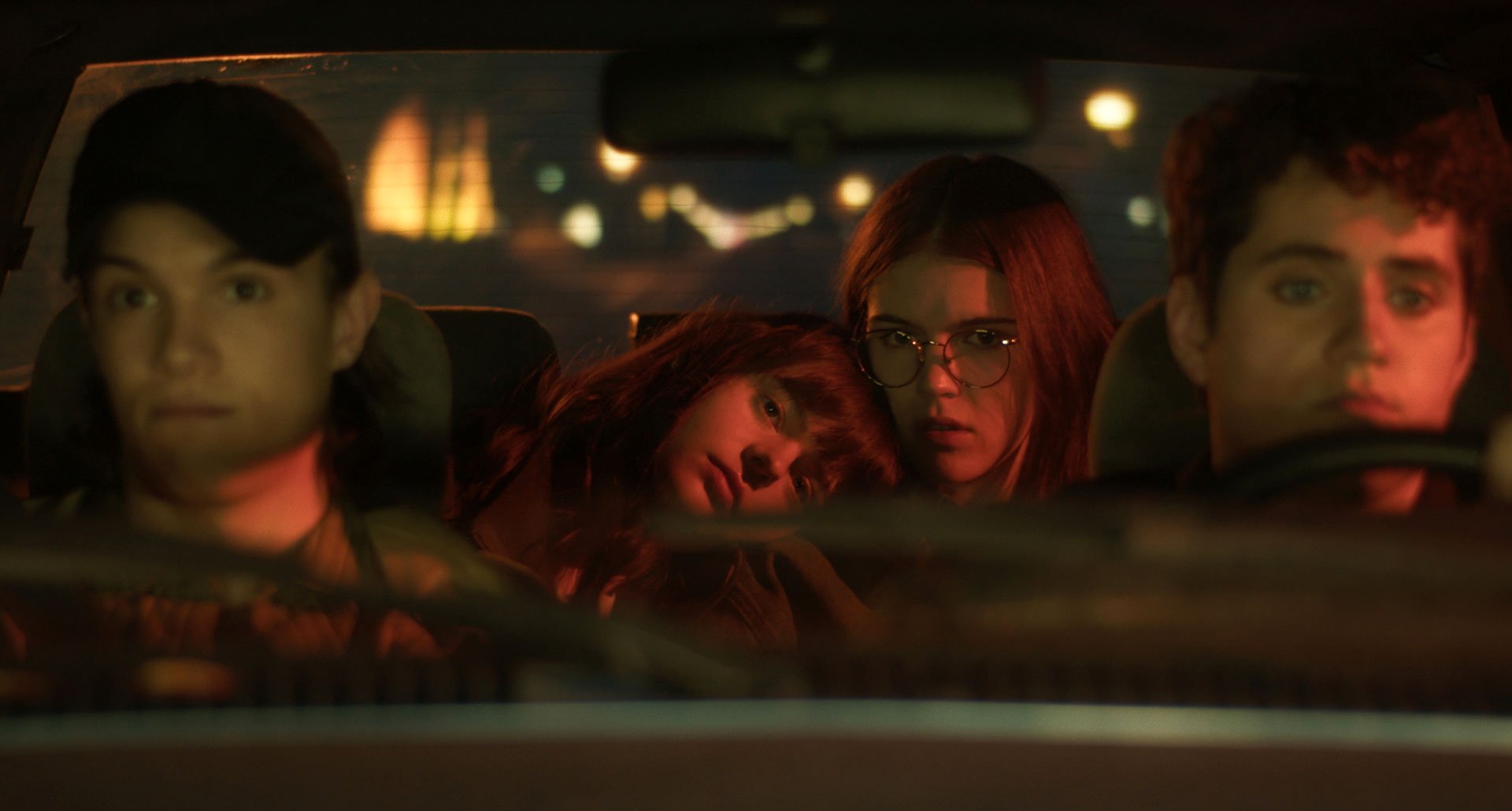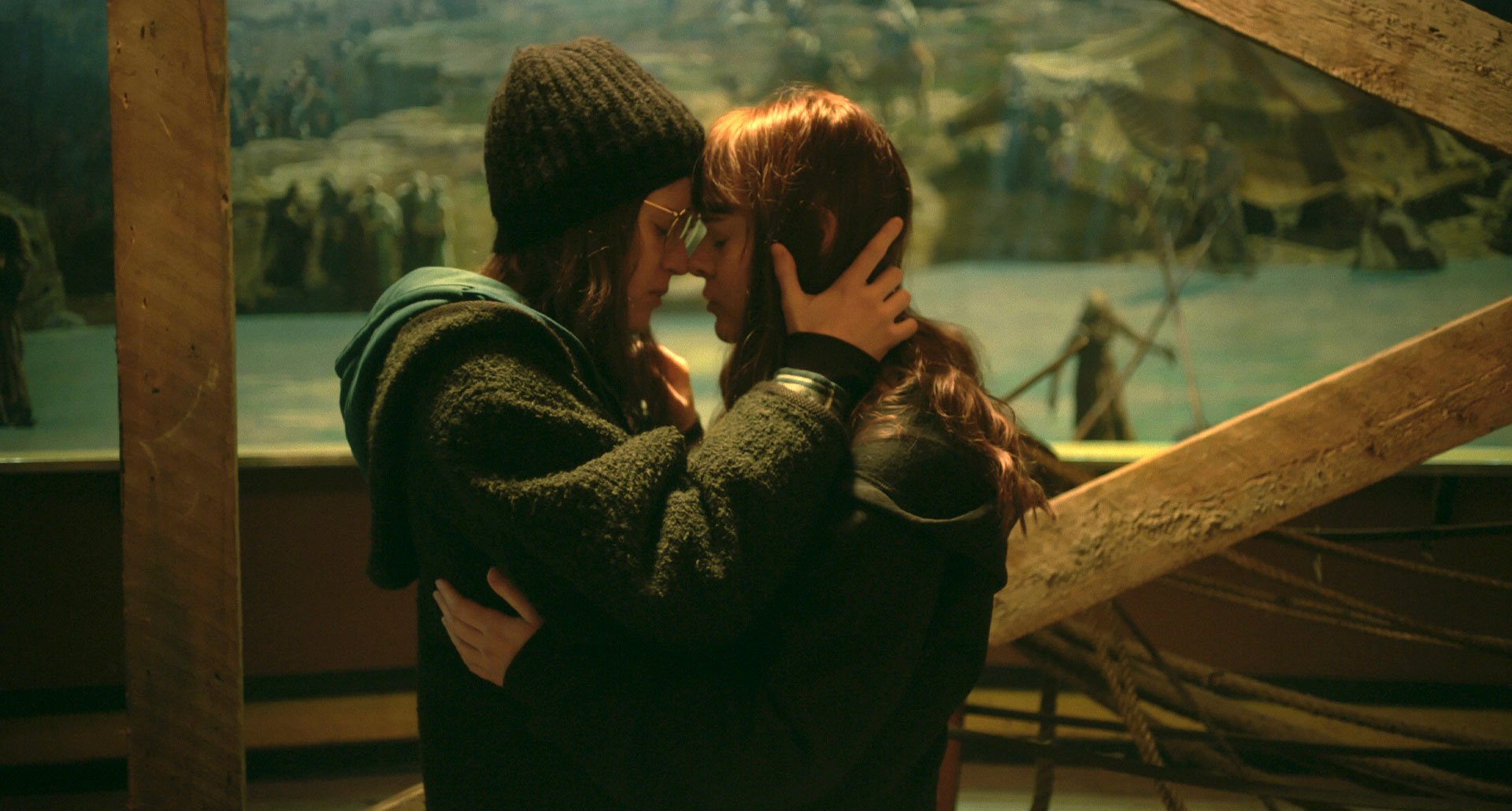‘You Can Live Forever’ REVIEW: Young love stands the test of time and faith
‘You Can Live Forever’ REVIEW: Young love stands the test of time and faith
The review contains minor spoilers for You Can Live Forever.
Nicole Kidman once earnestly said, “Heartbreak feels good in a place like this.” Seeing You Can Live Forever on the big screen proves Kidman’s testimony in the famous AMC ad to be right. Sarah Watts’ and Mark Slutsky’s debut film focuses on two teenage Jehovah Witnesses as their relationship grows closer and eventually leads to consequences. It has all the qualities of an indie debut film but that didn’t deter its quality. It never felt amateurish for it is packed with great performances and decent technical aspects.
Most of the point of view of the film is on Jamie, played by Anwen O’ Driscoll. She is an outcast who rebels to the customs of the belief she never really had faith in. She smokes, listens to Cocteau Twins and plays video games. Following the death of her father and her mother's breakdown, she moves in with her devout aunt and uncle. Everything you need to know about her is introduced in nuanced before we meet Marike (June Laporte), a devout Witness girl, and her family. Their performances are effective and outstanding. Laporte and O’Driscoll’s chemistry is natural and believable enough to make the audience care for their blossoming affection for one another and how their relationship goes forward.
Their opposite traits offer tension and flavor to the film and we see how Jamie adapts to the community to get closer to Marike. With years of experience from directing short films under his belt, Slutsky, with his co-director Watts, directed with a clear and simple vision in mind. The film flowed smoothly and it organically let the protagonists’ relationship grow organically. Much of the mood of the film can be attributed not only to the performances but also to its technical aspects. Gayle Ye’s cinematography captures the tenderness of their romance and the heartache that came with it. Aided with Amelie Labreche’s editing, the film is paced just right while it keeps the slowburn nature of the story. Its song choices and music (by CFCF) not only transport you into its early 90s setting but reflect our leads’ personality and mental state in the film.
Slusky and Watts also wrote the screenplay, with Watts offering much meat into the writing process for her experience growing up within the Jehovah’s Witness. While it has some flaws, one in particular is the underused Jamie’s black best friend and confidant Nathan (Hasani Freeman), the screenplay still felt honest and raw due to Watts’ experience. In her director’s statement, she remarked how sapphic stories never really get the ending they deserve and oftentimes, one half of a sapphic pair ends up dying, or the famous yet dangerous cliche ‘bury the gays’ (see Tara and Willow on Buffy the Vampire Slayer). She said that she wanted to make one that she would want to watch and fall in love with when she was younger.
While the film didn’t bury any homosexual characters, they certainly are put into tough situations. From the synopsis alone, the audience are warned that it might not be for people looking for a light, quirky teenage queer romance. The film deals with topics such as loss and religious repression. Homosexuality is discouraged among Jehovah Witnesses and this is the dilemma our two leads are facing. Our protagonists carry grief as well, with Jamie’s recent loss and Marike’s mother not being welcomed into the community after rejecting their truth. The film handled these sensitive topics well and its screenplay explores this with enough depth for its 95 minute runtime. They both found solace in each other’s presence that ease their pain, but there is still one standing in their way: their religion. When the third act began, audience may wonder if it would go into a tragic direction, but instead of ‘burying the gays’, they are instead killing the connection the viewers got invested for more than an hour. All the tender and fervid feelings of love that brimmed in the middle of the film is turned into bittersweet heartbreak as Marike makes a decision that leaves Jamie in pieces.
Compared to Clea DuVall’s The Happiest Season (2020), You Can Live Forever’s entire third act is much closer to the painful reality of having conservative parents. Both have great endings for their lesbians but Slutsky and Watts’ film took more time to get there timeframe-wise. Much to the relief of the audience (also without spoiling much details), Jamie’s and Marike’s burning love to one another prospered and despite their distance over the years, the mark they left on each other never left.
Watts definitely succeeded in achieving her main purpose of making this. With the help of Slutsky, You Can Live Forever turned out to be a sweet and tender sapphic drama that was made with such passion and care for its subject material. A longer runtime would’ve been better, with a deeper dive on its topics and its characters. While it never broke new grounds, it is a commendable drama and a great addition to the growing genre of indie lesbian films.
You Can Live Forever is part of the RainbowQC portion of 2022 QCinema International Festival.















